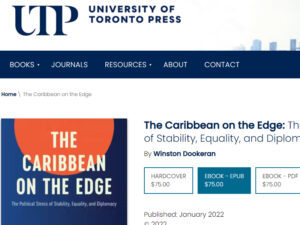General Principle:
It is important to note that EUCLID functions under an intergovernmental mandate to deliver programs of higher education that conform to international standards and that are fully documented (Statutes IX).
In addition, EUCLID is mindful of its roots to facilitate transition and conversion between the older francophone system and the newer LMD / BMD standard.
Official Documents:
French: Normes Academiques Applicables ![]()
English: Academic Standards ![]()
Revision to Applicable Standards by EUCLID:
EUCLID’s current standards are reflected in the course syllabi which have been revised several times since 2008.
As of 2012, EUCLID relies on a central database repository to manage standards enforcement, course syllabi updates, and the annual production of an annual academic catalog.
![]() Definitions and Credit values:
Definitions and Credit values:
USCH means United States Credit Hours
ECTS means European Credit Transfer System
A standard 3 USCH course (equivalent for EUCLID computations to 4.5-5 ECTS), represents a number of classroom instruction hours equivalent to 3 x 12.5 = 37.5 hours (lower baseline), and up to 3 x 14 = 42 hours (higher baseline). In a traditional classroom setting, about 2 hours of personal work are needed to supplement one hour of classroom lecture.
The major difference between the ECTS and the US College Credit system is that the first is based on student load and the second on contact hours (the baseline in USCH is for every hour in class students need to spend two outside of class).
The first (ECTS) is more oriented towards the students (the time required for them to meet the intended outcomes); the second (USCH) towards the faculty (the time a faculty member needs to teach).
Technically the ECTS has no co-curricular or extra-curricular activities because every activity needed to meet the intended outcomes of the program is valued with a certain number of ECTS.
The conversion ratio of USCH to ECTS is 1.5 (EUCLID guideline for lower conversion) to 1.7 (EUCLID guideline for more accurate conversion).
Credits and assignments:
Even in the case of (distance learning) courses for which lectures (audio / video) are available to cover the entirety of the material, reading assignments are mandatory.
In the case of courses that are primarily delivered by means of reading assignments, EUCLID considers that a standard 3 USCH course should correspond to approximately a minimum of 600-800 pages of intense, directly relevant readings.
This is consistent with generally accepted standards applicable to the USCH and ECTS systems.
Functional semesters:
For practical and organizational reasons, a EUCLID course is structured in the format of a semester (about 15 weeks).
This ‘semester’ is organized in 7 periods of 2 weeks each, the last one being a buffer and final study of 2 weeks.
Because EUCLID has a primary mandate to serve busy government officials for its Participating States, these periods are presented as a structured approach rather than as an enforced set of deadlines.
In practice, then, a student may take more or less than 14 weeks to complete a course.
In all cases, all the assignments must be submitted, approved and graded for the course to be completed.
It must be noted that EUCLID guidelines require that a comprehensive oral examination take place upon completion of all other assignments in order to the final grade to be posted and for the course to be formally completed.
![]() Academic Papers:
Academic Papers:
Academic papers have become the primary way through which students are evaluated at the graduate level.
EUCLID requires that all students take a 1 USCH course (ACA-401) to master the essential skills of academic paper writing in an international context. Students must validate compliance with these standards using a checklist before sending their assignments to the instructor.
Credit requirements for EUCLID degrees:
Bachelor’s: 120 USCH (180-200)
LLM: 26 USCH (40 ECTS)
Master’s: 36 USCH (=54-62 ECTS) beyond the Bachelor’s
Doctorate: 90 USCH (135-150) beyond the Bachelor’s (included 25 for the doctoral dissertation and its defense).
Note that some countries make a difference between a Master 1 and Master 2. EUCLID generally uses the term Master according to its most original usage which as in the UK/US system, hence the requirement of 36 USCH. However, EUCLID also offers the option to extend a Master’s roadmap to 54 USCH (90 ECTS) to meet the ECTS guidelines.
Summary:
In summary, every course has the following requirements:
– biweekly response papers
– two major papers compliant with ACA-401 standards
– one quiz (create by the student, based on textbooks)
– creation of one podcast
– final examination (closed book, oral, duration 30-45 minutes; and/or by proctored quiz examination)










